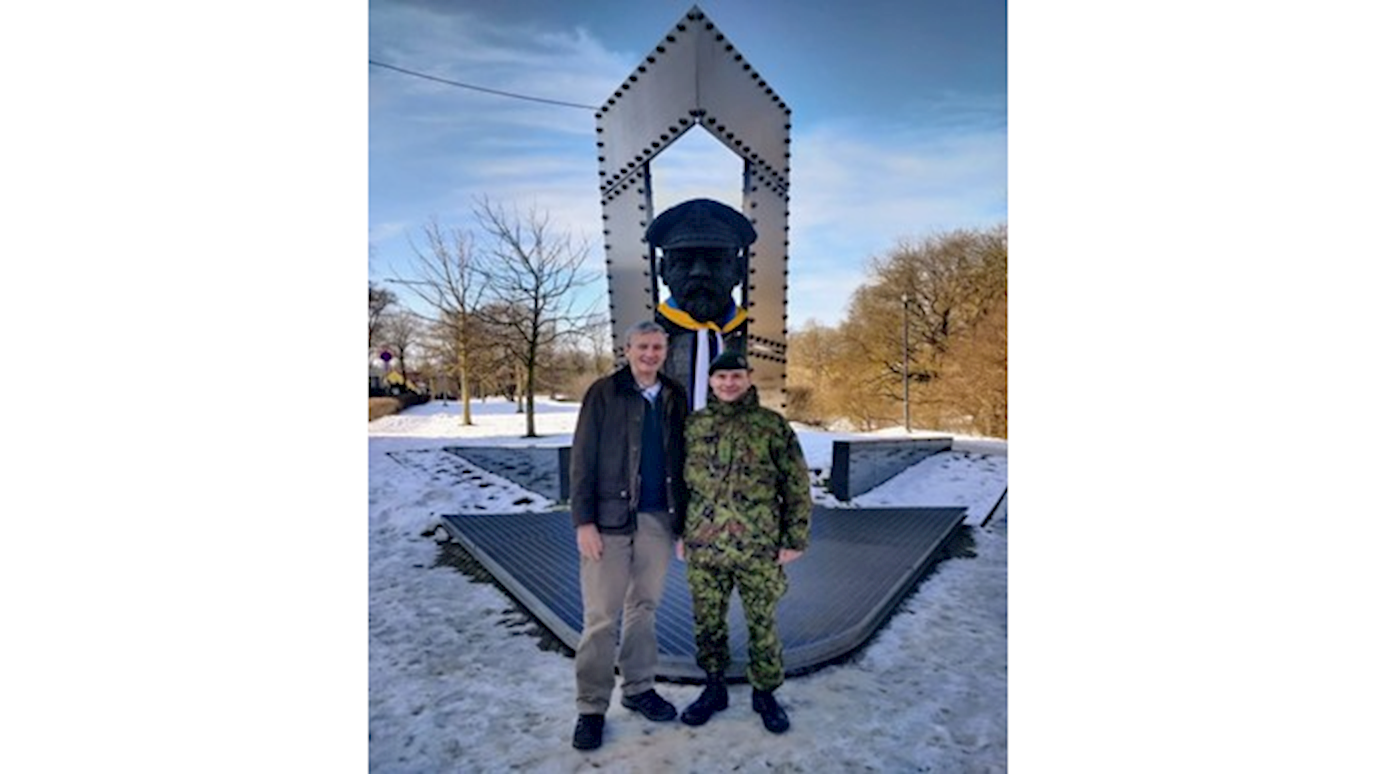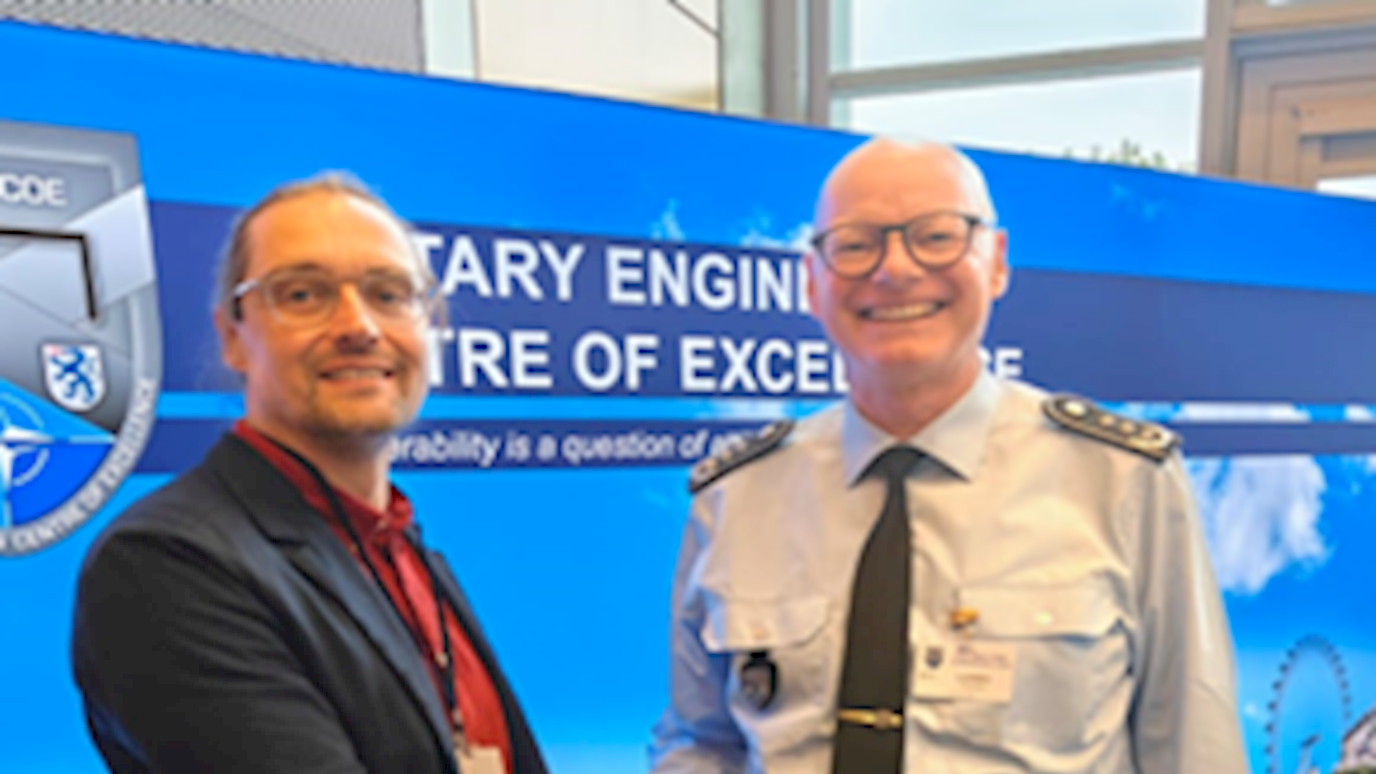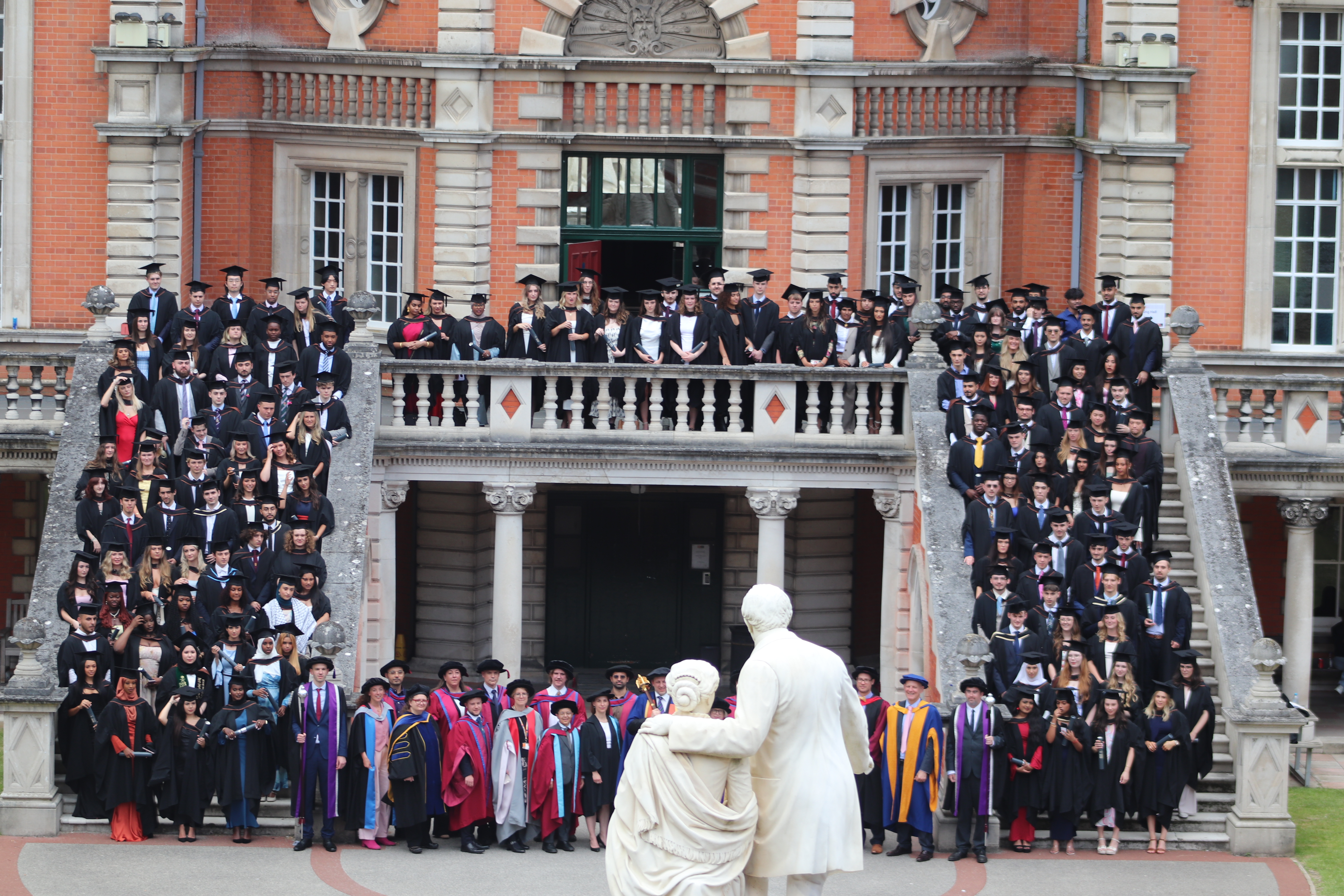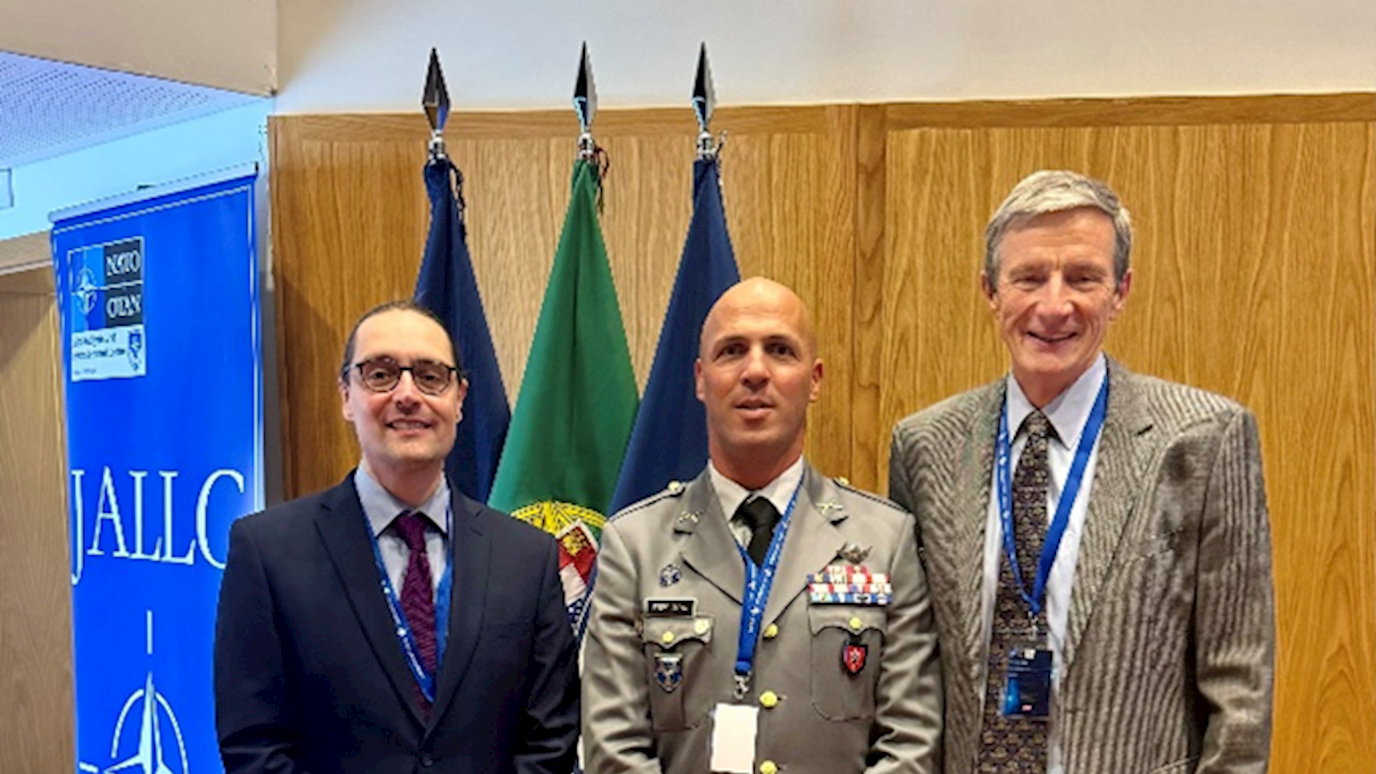In late February/early March Dr John Tull undertook a second two-week research trip to Estonia to conduct interviews within the Estonian Defence Forces (EDF), as part of Dr Tom Dyson’s ESRC project on military learning.

Dr John Tull with Lieutenant-Colonel Tiit Paljak, EDF Lessons-Learned Branch Chief, at the memorial to Johan Pitka, founder of the Estonian Defence League
The interviews explored the EDF’s organisational learning from counterinsurgency operations in Mali (Operation Barkhane) and from high-intensity warfare training exercises (the annual Spring Storm and Hedgehog exercises) for key areas of military activity, such as doctrine, interoperability, officer education, reservist training, procurement, and training.
The research programme has involved nearly 70 officers and NCOs in Estonia, generously provided at a time of heightened alert. Its successful completion was organised in partnership with the EDF’s J7 Training Department headed by Colonel Viktor Kalnitski, in close collaboration with the Lessons Learned Branch Chief Lieutenant Colonel Tiit Paljak who in the post-trip debrief noted that “The interviews conducted by John provided useful initial insights to some of the shortfalls that we need to address for continuous improvement as an organisation”. Further dissemination and impact activities are planned in Estonia once Tom and John have had the opportunity to analyse the findings.
The visit was the final major research trip for the grant. Since the data collection phase of the grant commenced in March 2022, John has undertaken over four months of research travel and conducted over 200 interviews with military officers and civil servants across the case studies of Estonia, the Netherlands and Portugal, as well as NATO’s Joint Analysis and Lessons Learned Centre. The project, which runs from October 2021-March 2024, has thus far resulted in an article, several conference/workshop papers, and an initial round of impact activities within the Portuguese Army, Royal Netherlands Armed Forces and Ukrainian Armed Forces.
Wider civil society engagement is also a key impact area of the ESRC grant, to help foster improved civil-military understanding and coordination through better processes for collecting, evaluating and sharing lessons learned. As part of this remit, during this latest visit John was invited to conduct a special seminar with academic staff of the Estonian Business School on 9 March in Tallinn. The seminar, entitled: ‘“Collective Self-Control’: A Pragmatist Reconstruction of Organizational Control in a Peacekeeping Mission”, revisited a management-oriented topic in a novel way with fresh insights into the military’s distinctive approaches and challenges in organisational learning.
























